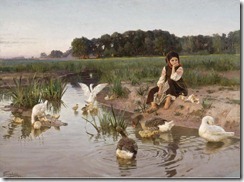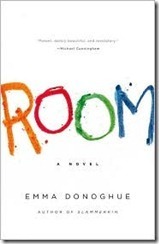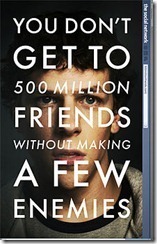Elizabeth Spann Craig's Blog, page 212
February 23, 2011
Your Characters—Frozen in Time, or Aging During Your Series?
 Sometimes I'd like to be my protagonist. Time moves at a much slower pace for them than it does for the rest of us.
Sometimes I'd like to be my protagonist. Time moves at a much slower pace for them than it does for the rest of us.
Margot Kinberg had a thought-provoking post on her Confessions of a Mystery Novelist blog the other day about the passage of time in series writing. In one interesting example, Margot points out that Agatha Christie had Tommy and Tuppence age in real time in one series while Miss Marple really doesn't seem to age at all in her series. Christie wrote Miss Marple books for almost 40 years and Miss Marple would have had to have been well over 100 if she aged at the rate that you and I do.
I write two series with protagonists in their 60s. I also write Myrtle Clover, who is an octogenarian. I've decided that, while time passes (the murders in the series are not happening back to back in real time from book to book), its passage is a lot slower than ours.
This suits me fine because I like to cultivate a slower-paced, cozier feel anyway. My characters grow—but in talent and character…not in terms of age.
I'm being vague about the passage of time in my books, primarily because of my characters' more advanced ages. But there are plenty of writers with young protagonists who stop time…Nancy Drew has stayed 18 for the past 80 years or so (well, she was 16, briefly, at the very start of the series.) Clearly, having Nancy age was going to put her in the category of 'grownup' to many of her elementary-school age readers.
Sue Grafton's Kinsey Millhone still lives in the 1980s. Grafton's first book of the series, A is for Alibi, was written and set in 1982. Her last book, U is for Undertow, which released in 2009, is set in 1988. Time does pass…but very slowly.
Then there are writers who have let their characters age over the course of a series—which sometimes results in the end of a series. The Little Colonel books come to mind (she married and that was it), and the Little House on the Prairie books where Laura grows up and marries (resulting in the end of the series.) Because really, how far do young readers want to stretch from the familiar? Reading about married life when you're ten years old can be something of a bummer.
So here are the possibilities, as I see them, for passage of time and character age:
Follow real time fairly exactly (so, if you put out a novel a year, then your character will age each year in real time)
Freeze time completely.
Slow down time in a vague way (my current approach)
Slow down time…dramatically (à la Sue Grafton.)
Speed time forward temporarily. Maybe you've frozen time for a couple of books or more and now your next book is set five years out from when your last one ended.
Any other thoughts on how to wrangle space and time in a series? Which approach do you take when you write…or which do you like reading?
February 22, 2011
Adults are Creative, Too
 I've always said, and believed it to be true, that I've never been more creative than when I was 9 years old.
I've always said, and believed it to be true, that I've never been more creative than when I was 9 years old.
My whole 4th grade year just crackled with creativity. I wrote every day, sneaked writing in during math time (no wonder my math grades were horrid), thought about what I was going to write when I got home from school, and invited children over to play and instead forced them to write stories with me.
But—I'm creative now, surely. I wrote three books last year, so how could I think I've not been creative? Except—I'm more methodical about it, and a lot more measured with my approach. Does that make me less creative?
Still, though, some days I feel like something is missing that used to be there.
There was an article I came across last week that made me realize what was missing. The article was by Jeffrey Davis on Psychology Today in a post titled "Think Like a 47-Year-Old to Boost Your Creativity."
I think it's wonder that's sometimes missing from my creative process.
Davis said that 19th century poet Charles Baudelaire once stated, "Genius is the capacity to retrieve childhood at will." But Davis noted:
But…highly creative people are not retrieving childhood - which includes, remember, all of its muddled-ness and meanness and necessary dependency and utter self-centeredness. These adults are retrieving wonder - which is what Baudelaire meant. When we say that "Genius is the capacity to retrieve wonder at will," then we're not nostalgically trying to bring back some "lost child" or "find our inner child." We are supremely present with who and how we are.
Davis says that studies have found the adult brain to be superior in many ways to a young brain. And he says that we can not only purposefully embrace wonder, but that our "knowledge and experience can enrich" it.
So looking at the world with fresh eyes is important to creativity. The wonder of the world is what helps fuel our imaginations. We might have to work harder to feel the wonder, but we can definitely do it.
How do you fuel your imagination and keep the wonder alive?
February 21, 2011
What a Cozy Mystery Is and Thoughts on Genre Writing
 I had an 'oops-moment' the other day when someone emailed me and asked me to explain what a cozy mystery was.
I had an 'oops-moment' the other day when someone emailed me and asked me to explain what a cozy mystery was.
This is what happens when you get so close to your subject that you don't adequately explain it.
Cozies are subgenres of the mystery genre. Mystery, actually, is a genre with many subgenres. Cozies are basically traditional mysteries featuring an amateur sleuth. The reader receives the same clues as the sleuth and solves the case alongside her. These mysteries are frequently humorous, character-focused, often (not always) set in small-towns, and are part of a series. You'll never find explicit descriptions of violence, dark themes, or much profanity in a cozy mystery.
When I talk about what I write, I'm always very specific (which is probably why I don't even think twice when I use the term 'cozy' anymore.) The reason is that when I interact with people in the industry, they'll ask me different questions based on my answer to "What do you write?" If I say I write cozies, another mystery writer might ask what my hook is (I write a Southern culinary mystery series and a Southern quilting mystery series.) If I said I was a police procedural writer, they might ask where I'd found my forensics research. If I said I wrote thrillers, they might ask if I wrote at all from the killer's POV.
If I say I write mysteries, it just doesn't explain much about what I'm actually writing. So I'm usually more specific.
Sometimes I get dinged for being specific. I remember a conversation with an aspiring author I had once. He asked what I wrote. "Traditional mysteries," I answered. "What do you write?"
He gave a bit of a smirk and said, "What I write can't easily be defined or pigeonholed."
I just smiled back, but what I was thinking was, "Well, that's a problem."
Because agents, editors, publishers—they have only so many hours in their day, like the rest of us. It sure does help to be able to quickly categorize a manuscript.
And, honestly, the more narrowly you're able to make that categorization, the better. So maybe you haven't just written a children's book. Maybe it's actually YA. Maybe it's not just YA—it's dystopian YA. If you can accurately pinpoint what you're writing, you'll know where to direct your queries to agents or editors (because they're usually fairly specific as to genres they're looking for). And they'll read your query and know what specific elements they're looking for when they read your manuscript—because the elements will be fairly common to that genre.
So, taking cozy mysteries as an example. Any agent or editor worth his or her salt is going to know that a cozy mystery is probably going to be around 75,000 words, won't have much profanity, won't have explicit descriptions of the dead body, will have an amateur investigating, and will frequently have some sort of a hook—it will be a culinary cozy, or a gardening cozy, or a crafting cozy. These are things they will be looking for as they read.
If an agent, in particular, gets something across her desk that's not easily defined—well, what's she going to do with it? How is she going to sell it to an editor—who is looking for something specific to appeal to a particular reader base.
I think, also, that it's easier to get your foot in the door if you're writing genre fiction. There are tons of readers out there for any given popular genre—fantasy, SF, romance, mystery. These are dedicated readers who will read each month's new releases in their favorite genre (my son is one of these. I just print out the new releases in his favorite genre each month and head to the bookstore.) So you've already got a reader base. This helps because, above all, you want to sell books to stay on the shelves.
What genre (or subgenre) are you writing or reading?
February 20, 2011
Promote Yourself, Not Your Book
 One of the best bits of advice I picked up last week was this gem from the Gatekeepers Post: author publicity makes better sense than book publicity.
One of the best bits of advice I picked up last week was this gem from the Gatekeepers Post: author publicity makes better sense than book publicity.
It's something I think I've tried to do—promote my name(s) as opposed to individual titles—but I've never really thought about the why behind what I was doing.
As the article mentioned, books do have a fairly short shelf life in bookstores (online, obviously, longer.)
Also, titles and series change. Just as I've got you remembering that I've got a book out that's titled Delicious and Suspicious, Finger Lickin' Dead's gets ready to launch.
I don't know about you, but I've only got so much room in my head for titles. Especially if an author is particularly productive. I'll definitely remember an author's name and I'll be able to recognize a book's cover art. A title? Probably not.
So I put my name out there. It's on Facebook, it's on Twitter. It's on my blog. And I have my covers right up there with me—they're splashed on my Twitter background, are uploaded on Facebook, and are in my sidebar. I visit blogs and my name and comment stays behind to show I was there. And I try very hard not to talk about my book. I mean—it's obvious I have a book or two. If someone is interested, they'll check them out.
Promoting a book can get obnoxious. There are many, many books that I feel have been over-promoted and overexposed by publishers, authors and PR people. It really lessens my desire to read the books. It's a shame, because what I was usually interested in was the author. And the author obviously didn't get it and shoved the book's title down our collective throats, instead.
Which will ultimately be around the longest—us or a particular title? Unless we're as unfortunate as Stieg Larsson, we're the ones who'll be out there writing long after the books are gathering dust.
The nice thing about promoting our name is that it also gives our books exposure. I've gone into the bookstore many times and asked for "the latest Elizabeth George" or "the new M.C. Beaton" or "the last release from Deborah Crombie." I don't even remember the title of the book I'm looking for. But I sure remember the authors.
I'm definitely promoting my next release...in the short term. But my long-term strategy is basically author branding (although I do hate that term.)
Do you find that authors' names are easier to remember than their titles (if the books are regular releases and not a really hyped title…e.g. Da Vinci Code, etc.)?
February 19, 2011
Twitterific
Here are writing links that I've posted to Twitter for the past week.
I'm delighted that now we have an efficient method of locating resources on writing topics when you need them—via the Writer's Knowledge Base search engine and software engineer and writer Mike Fleming's ingenuity. The links I tweet (which are writers' blogs, agents' and editors' blogs) all are added to the engine to make it easier for you to access the information you're looking for.
Addressing social issues in mysteries--without being preachy: http://bit.ly/fh9nbJ @mkinberg
Getting in the mood to create: http://bit.ly/eD6Pbk
The answer is in the work: http://bit.ly/fNH4vY
Need help pacing your story? http://bit.ly/gbXFZH
The Whole Story: Plotting Multibook Goals: http://bit.ly/hIh6g6
The Missing Link–NaNoEDMo: http://bit.ly/fTvkRx
A screenwriter answers industry-related questions: http://bit.ly/hTvKwn
Memo to Publishers: 8 Things NOT to Say: http://bit.ly/ibPPPC
An agent on why assistants should be respected: http://bit.ly/ffRUwj
The 3 Integral Components of a Story's Beginning: http://bit.ly/fi924u
Does agent location matter? (Should you query agents in other countries?): http://bit.ly/g243yw
10 Ways to Piss Off Your Readers So They Never Become a Customer: http://bit.ly/f8VFA2
Myst. Lov. Kitchen: GINGER CAKE http://bit.ly/hg5z4K @CleoCoyle
Konrath with numbers to encourage self-pubbing: http://bit.ly/efxnFG via @evil_avatar
11 Tips To Help Make Writing Easier: http://bit.ly/gd3Qkr
OMG! You can totally see her double spaces (on the double-space controversy): http://bit.ly/fEyjkK
How to use your blog to market your writing: http://bit.ly/hOTZDr
5 Ways Authors Alienate Readers on Social Media Sites: http://bit.ly/gcrbdE
Using Fear To Create A Dystopian World: http://bit.ly/eGljfm
Charles Dickens – Three Principles of Writing: http://bit.ly/hBTSp2
Need help with scene transitions? http://bit.ly/fivggV
Prologues: Not as Evil as You Think: http://bit.ly/gZnJDM
A writing checklist: http://bit.ly/gyLEuT
How to Make the Most of Procrastination: http://bit.ly/goAZPx
The Psychology of Character: http://bit.ly/hFvDhd
The Pros and Cons of Freelance Writing Online: http://bit.ly/hdYrmf
8 Tips for Dealing Calmly with Criticism: http://bit.ly/idWRoK
Think kids are more creative? Think again. Think Like a 47-Year-Old to Boost Your Creativity: http://bit.ly/i7yNvO
The power of the short sentence: http://bit.ly/dSZGAf
Best Articles This Week for Writers 2/18/2011: http://bit.ly/dSy1TV @4kidlit
How to Help Google Find Your Site: http://bit.ly/fqpVbO
Science Fiction vs. Science Fantasy: http://bit.ly/hUSzVO
10 Tips for Effective Book Covers: http://bit.ly/hyxL68
Don't lose your reader--use basic dialogue tags: http://bit.ly/eIY2Yj
Author Publicity Makes Better Sense than Book Publicity: http://bit.ly/e9VQe3
Your Author Photo: Posing Tips: http://bit.ly/f4Hudu
Scientists Date Unreadable Manuscript: http://bit.ly/h0Dxri
On Moral (Fantasy) Fiction: http://bit.ly/hkYp2T
Myst. Lov. Kitchen: Chocolate Chip Cheesecake http://bit.ly/fzv2nu @CleoCoyle
Why Twitter freaks one writer out: http://bit.ly/eYaH95
Modern Heroic Fantasy: Vibrant and Diverse or Bankrupt and Nihilistic? http://bit.ly/fivaFa
SFF and the Classical Past, Part 3—Heroic Romans: http://bit.ly/haDuCX
Author John Scalzi's perspective on Borders and what it means to writers' pocketbooks: http://bit.ly/hKNMVO
14 helpful writing links: http://bit.ly/gYFpt0 @matthewschulz
5 Ways a Character's Job Affects Your Story: http://bit.ly/dH3H74
One Writer's World-Building Tools: http://bit.ly/exo8m0 @SINCnational
The Care And Feeding of a Writer - Perseverance: http://bit.ly/f9W9EA
What's popular on the WKB search engine today? http://bit.ly/g9fTqf
Screenwriters: How To Have a Successful Staffing and Development Season: http://bit.ly/i5Bk9N
A Bankrupt Borders Makes Everyone Poorer, Especially Authors: http://aol.it/exuY5E
Making It Your Business: Setting Goals: http://bit.ly/ggnnpQ
Building our protagonist: http://bit.ly/hpg7BQ
A screenwriter answers "What show should I spec?": http://bit.ly/hmMn9i
How to Break Up With Your Writing: http://bit.ly/eKtysP
What Julie and Julia Can Teach Us About Writing With Gusto: http://bit.ly/h0z9DF
Seven Tips to Grow Your Mailing List: http://bit.ly/e3mGhq
Oh no! Melodrama! -- Avoiding the Reader Eye Roll: http://bit.ly/eeGTC6
Countdown of Ways to Keep a Novel Pacey: http://bit.ly/fbQ7eM
5 Traits Of Common Writing Scams: http://bit.ly/fmSoqW @ajackwriting
No Pain, No Gain: Killing Your Darlings: http://bit.ly/gaAOQf
Blog Tours For Authors: The 5 Commandments Of Blog Tourists: http://bit.ly/hsjqFU @thecreativepenn
When Overriding-Control-Disorder Meets Writing: http://bit.ly/hFfxni
How to Beat the Fear of Being a One-Book Wonder: http://bit.ly/eazKuS
Worldbuilding: How description reveals the focus of your narrator: http://bit.ly/hXRa4a @JulietteWade
5 Things Publishers Need to Know About Mobile Apps: http://bit.ly/eXK5Nl
Myst. Lov. Kitchen: Cheddar Corn Muffins http://bit.ly/ejRYRs @CleoCoyle
The Bankrupt Nihilism of Our Fallen Fantasists: http://bit.ly/hgKFCR
Writers and Unrealistic Goals: http://bit.ly/hblWMK
Zombies Rule, Vampires Drool: http://bit.ly/htKGXC
(In)Flexibility and the Writing Process: http://bit.ly/idIsIU @bluemaven
7 Pep Talk Points About Writing: http://bit.ly/ezMUn6
Ideas for finding more time to read: http://bit.ly/eHuAxe
An agent explains ISBNs: http://bit.ly/hPE7f2
5 Things To Do In Your First 3 Paragraphs: http://bit.ly/h7lIUS
Too many great links to bookmark? Try searching my tweets: http://bit.ly/dYRayA
How to Meaningfully Grow Traffic to Your Site/Blog: http://bit.ly/fSmEcz @janefriedman
Character motivations versus plot motivations: http://bit.ly/ekGZVP
A screenwriter asks, "Does Having an Agent Allow You to Live Outside L.A.?" The answer: http://bit.ly/eg5XZw
The full list of Borders stores to be closed (via Publishers Weekly): http://bit.ly/fELOT3
3 Strategies for Snaring the Senses: http://bit.ly/dPRC0y
Enough! Four cover tropes that should be retired: http://bit.ly/eb88ha
Scenes–what they are and how to write them: http://bit.ly/e2gxeE
Dialogue tips: http://bit.ly/fmaY0A
E-Publishing: Choices and Pitfalls: http://bit.ly/eEoSro @authorterryo
What one writer learned from screenwriting: http://dld.bz/NhWm
The Black Moment—When is it Dark Enough? http://bit.ly/gTwrnp @joanswan
Capitalization after colons: http://bit.ly/eVbM4j
Phrase Frequency Counter for Writers: http://dld.bz/NdUk @galleycat
How to Crush Clichés: Nix 'em or Fix 'em: http://dld.bz/NdUc
Borders Pulls the Trigger on Chapter 11: http://bit.ly/hUD8cw (PW)
Tax advice for writers: http://dld.bz/NdTz and http://dld.bz/NdTH
The 3 Integral Components of a Story's Beginning: http://dld.bz/NdNg
5 Reasons You Might Be Hearing No: http://dld.bz/NdNd
An agent on the reasons behind the length of book production: http://dld.bz/NdMS
An agent answers 10 quick questions: http://dld.bz/NdTR
Myst. Lov. Kitchen: Creamy Corn Soup http://bit.ly/f89AQR @CleoCoyle
Personality types on Twitter--avoid being a 'Debbie Downer': http://dld.bz/NdMs
A Twitter round-up listing new agents and agent advice: http://dld.bz/NdFj @HeatherMcCorkle
Self-Editing Part 2: Writing Style: http://dld.bz/NdEW
The Second Golden Rule of Writing: http://dld.bz/NdER
What we say when we don't speak. Or 5 ways to put a sock in it: http://dld.bz/NdEM
Wait—Who Said That? Keeping Your Speakers Straight: http://dld.bz/NdEz
Is your book's setting ho-hum? http://dld.bz/KNYg
How to Impress Blog Visitors Before they Start to Read: http://dld.bz/MTwD
Laying clues to your character's personality: http://dld.bz/Nd9w
Making Your Characters a Character: http://dld.bz/MTwg
10 misconceptions about public libraries: http://dld.bz/MTwd
Don't Go It Alone: Relationship-building for Bloggers: http://dld.bz/MPHF
Is the future of physical book publishing the same as the future of reading and writing? http://dld.bz/MPHq
5 Lessons for Mixing Past and Present Tense: http://dld.bz/MPFU
A writer on the importance of networking: http://dld.bz/MPFx
10 Ways to Embarrass Your Character: http://dld.bz/MPFh
Are You Ready to Freelance? A Quiz to Find Out: http://dld.bz/MPFb
Writing What You Don't Know: http://dld.bz/MPEr
Head-hopping and a POV review: http://dld.bz/MPEm
An Agent Answers: Question from a Writer - What about older writers? http://dld.bz/MPDF
2010 State of the Computer Book Market, Post 2 - The Categories: http://dld.bz/MPGa
Myst. Lov. Kitchen: A Classic French Dessert: Chocolate Pots de Crème from Cleo Coyle http://bit.ly/eJHxMh @CleoCoyle
4 Steps to Podcasting Success: http://dld.bz/MPCm
Love Your Novel: Just Don't Let it Take Over Your Life: http://dld.bz/MPCc
The Dangers of Dating a Writer: http://dld.bz/MPBJ
Love letters--to our manuscript: http://dld.bz/MSkY @elspethwrites
For Valentine's Day: 10 Sexy Innuendos From Great Literature: http://dld.bz/MMvm
6 exotic places to meet your manuscript: http://dld.bz/MPAa
For a monthly recap of the most popular tweets and searches on the Writer's Knowledge Base, sign up for our newsletter: http://dld.bz/MNU9
A screenwriter with a screenwriting bible: http://dld.bz/MMwu
Descriptive Passages, Part III: Action: http://dld.bz/MMuj
14 ways to love what your manuscript loves: http://dld.bz/MTx5
How did the search engine for writers come about? http://dld.bz/MMup
The Best Way to Make Time for Passion Projects: http://dld.bz/MMuf
Tips for Writers: How To Use Social Media: http://dld.bz/MMsZ
The lost art of editing (Guardian): http://dld.bz/MMsU
Starting Your First Blog? 29 Tips, Tutorials and Resources for New Bloggers: http://dld.bz/MMsE
One arrow to shoot at a target? An agent responds: http://dld.bz/MCd5
What makes writers special: A valentine from an editor: http://dld.bz/MAu7
Borders expected to file bankruptcy this week--and an examination of what led to its demise (including bar codes): http://dld.bz/MPBe
8 Signs Your Writing Is Stuck in a Rut - and Why You Should Care: http://dld.bz/MCdg
Writing the Natural Way: Drawing on What Your Know: http://dld.bz/MCde
Turn your screenplay into a novel: http://dld.bz/MCc7
For Valentine's Day--The 10 best love stories - in pictures (Guardian): http://dld.bz/MAu9
Advice on Online Presence from Publishing Experts: http://dld.bz/M797
A Love Letter to Writers' Spouses: http://dld.bz/M78G
10 Websites For Writers: http://dld.bz/MMw2 @ajackwriting
You know you're a book blogger when... http://dld.bz/M78t
Myst. Lov. Kitchen: Last Minute No Panic Valentine Treat http://bit.ly/erIZGy @CleoCoyle
The E-Book Royalty Mess: An Interim Fix: http://dld.bz/M78n
Tips for dealing with hand and wrist pain from writing: http://dld.bz/M78g
That elusive voice: http://dld.bz/M77T
Twitterific--the week in tweets: http://dld.bz/MEe2
Writing sex--the 'why?' : http://dld.bz/M77J
Best tweets for writers (week ending 2-11): http://dld.bz/MDzC @janefriedman
Ready to query but don't know where to start? http://dld.bz/KNZk
Is Your Writing a Fling, or the Real Thing? http://dld.bz/M779
The Four Essential Stages of Writing: http://dld.bz/M77s
Making Your Writing Exciting At the Sentence Level: http://dld.bz/M76F via @SouthernBella03
Get the big picture of your novel: http://dld.bz/M767
The Rules of SciFi: http://dld.bz/M76r
7 Habits of Serious Writers: http://dld.bz/M75Z
17 Reasons Why Entertainment Weekly Is Wrong About Romantic Comedy: http://dld.bz/M75N
Tool for Writing Longhand: http://dld.bz/M75t @CherylRWrites
Great Openings in Kid/YA Lit: http://dld.bz/KVqQ
Myst. Lov. Kitchen: Please welcome guest blogger Vicki Delany - ta dah! http://bit.ly/dX1X9w @CleoCoyle
Roles That Bind: Roleplaying Games and the Fantasy Genre: http://dld.bz/M78H
Writing Inspiration, Beating Blocks And How To Manage Your Time With K.M.Weiland: http://dld.bz/M5xC
The Essence Of your Book and The Unexpected Value Of Twitter: http://dld.bz/M7Pn @ajackwriting
One song to the tune of another – dos and don'ts of mash-ups and juxtaposition: http://dld.bz/M5xP @dirtywhitecandy
Character checklist: http://dld.bz/M75e @SouthernBella03
Beyond the most common fiction mistakes: http://dld.bz/M5wU @victoriamixon
You Know You're A Writer When…12 reasons: http://dld.bz/M7ye @JulieeJohnsonn
How a Blogging Platform Can Aid Novelists - And Other Questions Answered: http://dld.bz/M5wJ @thecreativepenn
How similar are you to your protagonist? http://dld.bz/M5w4
February 18, 2011
Reading While Writing, Finding Time to Read
"If you don't have the time to read, you don't have the time or the tools to write." Stephen King, On Writing
As I mentioned a few days ago, I'm reading Stephen King's book, On Writing. Although he approaches writing differently than I do (and obviously, his method has brought him a lot of success), I did agree with the point he made about the need to read.
I've always been a huge reader…there are books on my Kindle, books spilling off my shelves, books in my huge pocketbook, books waiting for me on hold at the library.
This year, one of my goals is to find more time to read.
Last year, I spent a lot of time writing. I wrote, actually, three books in the space of a year. I promoted two books. Many days, I ran out of time to read.
The last few months, though, I've been able to pack more reading in, even though I'm writing a new series for Penguin. That's because I've got a variety of different things to read and I've got them available to me everywhere I go.
I've got different types of reading: non-fiction, short stories, periodicals, lit fic, and other genres.
I've got books in the car, in my purse, in my laptop bag, on my bedside table, and in the kitchen (we won't talk about my housekeeping right now. Things are looking cluttered.) :)
The #1 biggest thing I've done to help me read more frequently? Is buy a Kindle. I've got many different types and lengths of books and periodicals on my e-reader, and the Kindle is so small that I can easily take it with me wherever I go.
There was a post this week on the Gatekeepers Post blog that had tips for finding more time to read. I'll let you read the whole article, but here are some of the tips they provided:
Read on the treadmill at the gym
Take a book to the movies and read during previews
Read to someone else: your students, children or elderly relatives
Download audio books to your computer from your public library and listen while working
Check out books on tape from your public library and "read" in the car
Join a book club.
How do you find time to read?
February 17, 2011
The Wince Factor
 Each month, I wait for my book club's pick with some trepidation.
Each month, I wait for my book club's pick with some trepidation.
Book clubs are frequently fond of books that make me wince a good many times during the course of the novel. These books are usually pretty popular with readers, though, and do sell well.
I just have a hard time stomaching the content.
I didn't used to be such a delicate, sensitive, squeamish reader. I'd read just about everything and, while I might skim during some sections, I wouldn't just stop reading a book because of the subject matter.
I think I started noticing the shift around the time my first child was born. (Yes, we'll blame parenthood. :) ) It also bothered me when I watched movies. My husband rented Saving Private Ryan and I wouldn't watch D-Day. "Elizabeth!" I remember him saying, "It's not gratuitous in any way. You should watch it—it's supposed to be very much like the actual event."
Precisely why I didn't want to watch it! And those guys were too young to have to go through it all—they were practically children. I ended up watching D-Day with my hands mostly over my eyes.
So excessive violence, gore, and child-in-danger stories… I just can't handle them.
And my book club has taken on a few of those, probably because it's a group of (mostly) moms.
This month's pick, to be discussed next week, is Room by Emma Donoghue. As soon as I heard the subject matter, I was worried. The waiting list at the library for the novel was huge, so I bought the book online, downloaded it to my Kindle and hoped the novel would be something I was able to finish.
The reader who chose the book said that I shouldn't have a problem with it—although the story revolves around the fact that a woman and her five year old son are held captive in a one-room prison that the child was born in. So far, I've found the book really interesting. Disturbing, yes, but not explicitly horrific.
As a reader, my tastes seem to change over time. Right now, I can only handle so much violence against children or animals. And frequently, lately, I've been looking for lighter reads—nothing too dark or disturbing.
As a writer, I know I couldn't write anything really dark right now—I can't read it, so how could I write it?
I just finished writing the rough draft of a book that included a fairly dramatic death. I'm writing cozies (traditional mysteries where the murders happen offstage), so I'm definitely thinking about my reader—many of whom share my dislike of explicit violence and gore. I wrote very carefully, giving the death a certain impact, but not exploiting the violence by using graphic detail.
But it still bothered me! And I'd made it up!
Are you able to write subject matter that would be difficult for you to read? In other words, does the writing put a filter in place for you or does it make you even more engrossed and disturbed by the material. (I'd like to think I can write with some detachment, but I'm starting to wonder if that's the case.) And--do your tastes change, in either reading or writing?
February 16, 2011
Building Our Protagonist
 It seems like I've unintentionally set up this past week as Protagonist Week. :) Can you tell I've been working on a new protagonist for the new series?
It seems like I've unintentionally set up this past week as Protagonist Week. :) Can you tell I've been working on a new protagonist for the new series?
I'm also reading, at the same time, Stephen King's excellent book, On Writing. I was startled to read, though, that he never felt any real sense of liking for Carrie White, the protagonist in his first novel, Carrie. He says:
Carrie White seemed thick and passive, a ready-made victim.
I've written protagonists that can be difficult (my Myrtle Clover character comes to mind.) But I've always liked them. They're always people that I would want to spend time with. I think it would be tough to write a book when you're not wild about the protagonist. In fact, it was apparently tough for King, too—he ended up throwing an early draft of the manuscript into the trash, until his wife fished it out.
For me to be able to work with a protagonist over the course of a series, there are definitely some traits I'd like them to have:
Humor: When someone lacks a sense of humor, they're frequently taking themselves too seriously.
Looks and Means: Average or pleasant looking and comfortable
Flawed: I'm a fan of flaws and I've mentioned writing my own into my poor protagonist.
Proactive: They attack problems instead of watching to see if someone else will leap into action.
Intelligent or Canny: If they're not geniuses, it's okay—but I do like a clever mind or simple common sense
They know their own mind: There aren't lots of wishy-washy scenes where they wonder what they should do next.
They're dynamic: They grow over the course of the book or series.
One thing that's important to me is knowing what motivates them. I want to have some sort of idea of what makes the protagonist tick. Otherwise, I won't really get them and know how they'll react in different situations.
If you're in the protagonist building phase right now, yourself, here are some links that I've found useful in the past:
Alexandra Sokoloff: Creating character - the protagonist Adventures in Children's Publishing: Character Worksheet
Eclectics: Fiction Writer's Character Chart
The Writer's Knowledge Base (and click on 'character')
There Are No Rules: Your Protagonist Must Have a Goal
Guide to Literary Agents: Agent Donald Maass On: Your Tools for Character Building
What are traits that you find easy to work with in your protagonist? (I think many writers would be looking for different traits…and desirable traits might differ from genre to genre.)
February 15, 2011
When Protagonists are Unlikeable or Difficult
 I'd heard a lot about the movie The Social Network, and decided to rent it last weekend to see what the fuss was about.
I'd heard a lot about the movie The Social Network, and decided to rent it last weekend to see what the fuss was about.
The movie was well done, I thought. One thing that really interested me was how riveted I was by the film when I actually didn't give a flip about many of the characters in it.
Mark Zuckerberg (as portrayed in the movie) is not exactly the most likeable guy out there. Actually, he comes across as borderline sociopathic.
The Winklevoss twins who claimed Mark Zuckerberg stole their idea for Facebook? It's hard to really feel sorry for them. It sounded like their idea was for more of a Harvard dating site.
Sean Parker, the founder of Napster? Major jerk in the movie.
I honestly couldn't even summon up sympathy for Zuckerberg's ex-girlfriend. Who would go out with such a person, anyway?
The only character that I found sympathetic in the film was the former Facebook CFO, Eduardo Saverin. He was only CFO because he was Zuckerberg's roommate/friend and had money in his checking account.
I wondered why I found the movie so interesting-- usually I'm all about the characters.
The main character, Zuckerberg, is just different. He's difficult to figure out. He's brainy (usually an appealing trait…except when the braininess is used against you in a scheming way) but was written to be almost petty in his immaturity and jealousy.
So this seems to be a story where the complexity and ambiguity of the main character—and the hopes of a hint at what makes them tick—is what makes it appealing.
Have you watched the movie? What made you keep watching it? Or, if you haven't watched the film, what makes you keep reading a book when there's an unlikeable protagonist? Have you ever written one?
February 14, 2011
Character Clues
 I've never really thought about it until now, but my friends are very, very specific whenever we set times to meet.
I've never really thought about it until now, but my friends are very, very specific whenever we set times to meet.
I'll arrange to pick up a friend for lunch or to volunteer at our kids' school. "Why don't you come by at 9:35?" they'll suggest. Or, "Elizabeth, I'll be ready at 11:50."
A friend pointed this out recently, "You know no one else gets precise instructions like that." I didn't understand. She said, "No one else is told the exact minute to meet. Most people will say something on the hour or the half-hour. Maybe on the quarter hour. The only reason people tell you that is because you'll be there at exactly that time. You're never early or late. If you were late, I'd call the cops because I'd know something horrible had happened to you."
So, if I were a character (and I'm wondering now if maybe I am), a reader could possibly make some assumptions about me. Some might be right and some might be wrong.
Someone might conclude that I'm a little Type A. They might conclude that I keep an eye on the clock. Maybe they'd just conclude that I'm punctual (although apparently I take it a little too far.)
Of course I'm all about clues, since I'm a mystery writer. The fun thing about character clues is that the reader gets to figure things out for themselves. Editors love showing—and it's a great way to show.
Frequently, when I think about character clues, I'm using clues that are physical pointers. In other words, I'd have something like a character who opens his car door and a bunch of papers and wrappers fall out. Easy to make assumptions about him, right?
But if I bring in another character, I can show that character's demeanor when dealing with the protagonist—and add dialogue clues to hint at character traits and the characters' relationship with each other .
Maybe you have a character that you want to represent as someone who talks too much. This could easily be expressed by interruptions from a second character or their signs of impatience. Or of them putting off a phone call with the character. Much better than pages and pages of chatty dialogue to prove the point.
Since I'm a mystery writer, I might also be interested in planting the wrong impression of a character. I might want to mislead the reader. (Other novelists might want to do the same thing, for different reasons.) Maybe the character is unnaturally chatty because they're nervous. Maybe the second character is just an impatient person who interrupts—maybe they're not making a point about the character's loquaciousness at all.
How do you handle character clues?


![Terry3_thumb[1]](https://i.gr-assets.com/images/S/compressed.photo.goodreads.com/hostedimages/1380447585i/1701687.png)



